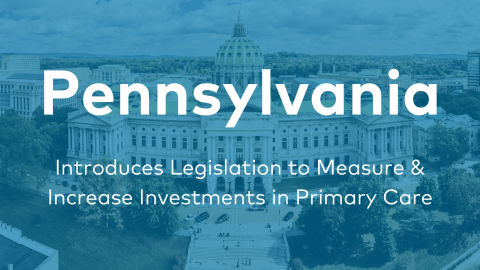Pennsylvania
In response to Pennsylvania’s growing chronic disease burden and its impact on healthcare spending, the Governor issued Executive Order 2007-05 on May 21, 2007. This order created the Pennsylvania Chronic Care Management, Reimbursement and Cost Reduction Commission, also known as the Chronic Care Commission. The Commission proposed and then implemented the Pennsylvania Chronic Care Initiative (CCI) designed to achieve four strategic goals:
- Widespread use of a new primary care reimbursement model that rewards PCMH care based on the Chronic Care Model.
- Broad dissemination of the Chronic Care Model to primary care practices across Pennsylvania, through regional chronic care learning collaboratives.
- Achievement of tangible and measurable improvement in patiient satisfaction, access to care, health outcomes and quality of life.
- Reduction in the cost of providing chronic care with the reduction of avoidable hospitalizations and emergency room visits and mechanisms to ensure that some of the savings are realized by all entities paying for health care.
The first rollout (Southeast PA) started in May 2008 and six more learning collaboratives were launched through December 2009, involving a total of 152 mostly small and medium-size primary care practices and 640 providers (75% of the practices have 5 or fewer FTE providers). In four of PA’s seven regions, 17 payers, including Medicaid, provided $30 million in infrastructure payments to practices to support transformation. Since 2009, the state’s contracts with Medicaid managed care organizations (MCOs) have required MCOs to participate in the CCI. Phase II of the CCI began in January 2012 with funding from the Multi-payer Advanced Primary Care Practice demonstration.
CHIPRA:
Yes
MAPCP:
No
Dual Eligible:
No
2703 Health Home:
No
CPCi:
No
SIM Awards:
Yes
PCMH in QHP:
No
Legislative PCMH Initiative:
Yes
Private Payer Program:
Yes
State Facts:
Population:
12,759,200
Uninsured Population:
10%
Total Medicaid Spending FY 2013:
$21.0 Billion
Overweight/Obese Adults:
64.5%
Poor Mental Health among Adults:
35.5%
Medicaid Expansion:
Yes
Pagine
Menu secondario
Copyright © 2024 Primary Care Collaborative








